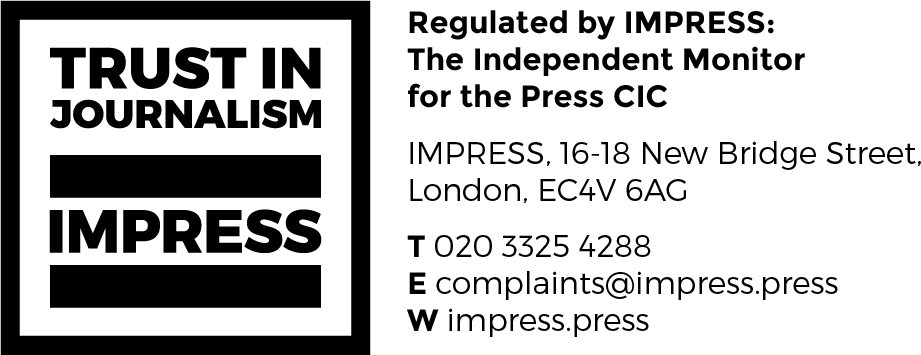View from the bridge: Why captains make the best managers

“A strong captain, given the autonomy to build their own team, makes for an efficiently-run and harmonious vessel.”
Yacht management seems to have become the hottest topic in the industry over the past few years and mostly for reasons that the management companies will not want to hear, writes Iain Flockhart. Management is considered by many as a necessary evil, and by many more as a completely unnecessary evil.
I have decided to pitch into the debate with my own views as a captain about whether or not you even need management at all if you have a very experienced captain in place.
I firmly believe that for any vessel under about the 60-metre mark full management is entirely unnecessary and, in many cases, extremely counter-productive.
Let me first attach a caveat to that statement. There needs to be a reasonable amount of support provided to the captain and crew from whoever represents the owner, be that the family office or another representative of the owner.
Two critical points are that:
1: There needs to be a flow of reasonably accurate and timely information
2: There needs to be a flow of adequate (budgeted) funding.
These are, incidentally, both issues that management companies are not immune to suffering from as well.
Having these two things alone in adequate measure will greatly facilitate the smooth running of a ship. The very simplest way to find yourself not even contemplating if you need management or not, is to take the time to ensure that you employ a highly experienced and professional captain with a solid background in administration and with an excellent track record for crew retention. Above that you should make sure that the individual’s financial management skills are to a standard that, as an owner, you would expect them to be.
What is a Captain?
Think about it, what is a captain? A captain is simply the ship’s onboard manager. If he or she is unable to carry out the tasks that are normally expected of a person holding the highest rank, then perhaps that person is in the wrong job.
Anyone who has studied business will know that in terms of management structure, an isosceles triangle is a more efficient model of management than an equilateral triangle. Why add unnecessary layers of management to the triangle?
Once you have a strong captain in place and he or she has the autonomy to build their own team around the vessel you will generally find that you grow towards a much more efficiently run and harmonious vessel. This can only serve to benefit an owner.
You only need to listen to the often-justifiable criticism of management by experienced senior crew to understand the reasons why much of their input is extremely counter-productive to efficiency and overall harmony onboard.
Hiring crew is a perfect example. Yachting is such a unique industry and the challenges that come with it so considerable that given the nature of the selection of crew, it is undoubtedly best left to those on-board in senior roles who know exactly who they are looking for and will best fit in on-board.
Allowing shore-based staff within a management company who really do not have their fingers on the pulse of what’s happening on-board to manage a yacht is not the best way forward.
Owners cite crew issues as number one gripe
It’s a well-known fact that owners cite crew issues as their number one gripe, and this issue alone drives more owners from yachting than any other. If you have a great captain on-board, someone who is very experienced in dealing with crew, someone who can mentor them along the way and someone the crew respect, then you are much less likely to encounter the kind of issues that will manifest as ones that affect the owner’s experience on-board.
Financial management: Once again, this is a topic that is frequently cited in this debate.
Providing that you have a suitably experienced captain on-board, no one should know better than them what is going to be required in the coming year in terms of finance to run the vessel. You do not need complex bespoke software to do this, a well-written spreadsheet or one of the many top-quality accounting packages that are widely available for all industries can do the job perfectly.
A captain should be best placed to run the vessel more efficiently if he or she is in direct control of the (budgeted) finances for the year.
Conflict of interest or lack thereof: It is no secret that a massive conflict of interest exists between large management companies that also offer brokerage, and the yacht owners they purport to serve.
Allowing your captain to properly manage your vessel will prevent such a conflict of interest from ever arising. You will save on very substantial management fees if you can trust your captain to do his job properly. You will nurture more trust and respect from the captain and crew if they are more in control over how the ship is run.
About the author
Iain Flockhart is a highly-experienced yacht captain with over 250,000 nautical miles in the role of professional captain since 1996. He grew up on sailing vessels but chooses to work on motor yachts now. He has a great reputation for crew loyalty and retention, through solid management, mentoring and leadership.
Iain has a wealth of experience of working in very challenging roles. He has a wide and varied skills set with solid management and administrative skills. He enjoys simple pleasures such as using his seven-metre RIB to go exploring and wild camping in his native Scotland. Iain is currently looking for new opportunities to command a superyacht.
Subscribe to our free newsletter
For more opinions from Superyacht Investor, subscribe to our email newsletter.

